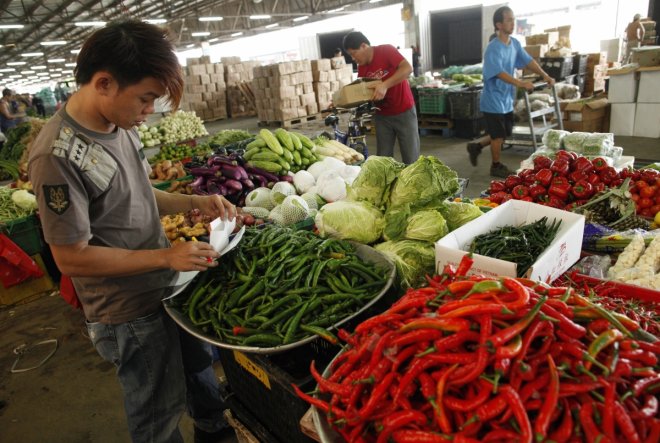
Consumer price inflation in the island nation rose to a 28-month high in January on the back of surging food and transport costs in the city while the monetary authority's core measure too jumped to a near 2-year high, data showed on Thursday (Feb 23)
The Singapore dollar, however, weakened against the US dollar on the day as the US currency was broadly pulled higher by the latest news from the world's largest economy indicating interest rates may soon rise further there.
In January, Singapore's CPI inflation came at 0.6% from a year earlier, in line with the consensus but up from 0.2% in December, which was a return to the positive territory after several months of negative reading.
Month-on-month, consumer prices rose 0.2% in the first month of the year, matching the December rise and faster than the market expectations of 0.1% rise.
The Monetary Authority of Singapore (MAS) monitors a core inflation measure that excludes the components of accommodation and private road transport. It has surged to 1.5% year-on-year in January from the December reading of 1.2% and beating market consensus of 1.3% rise.
USD/SGD rose to 1.4162 from the previous close of 1.4121 before easing back to 1.4133 at around 1:30 PM in Singapore. The pair had slipped to a low of 1.4117 intra-day.
The Singapore currency had rallied more than 0.4% to a 2-week high against the greenback on Wednesday before the Fed-driven pull back on Thursday.
CPI In Detail
In the Singapore CPI calculation, highest weightage is for housing and utilities (26.3%) followed by food (21.7%) and transport (15.8%). The housing index dropped 3.2% in January while the food index surged 1.9% and the transport one rose 2.8%.
In December, all the three were up 0.2%, 0.5% and 0.1% in the same order.
In a separate press release, the Singstat said that in the second half of 2016, the consumer prices for all items for general households fell by 0.2% as compared to the same period in 2015, smaller than the decline of 0.9% in the first half.
For the whole of 2016, the same fell by 0.5%.
Excluding imputed rentals on owner-occupied accommodation, the CPI increased by 0.7%, rebounding from the 0.2% of the January-June period. For entire 2016, it rose by 0.3%, up from the 0.1% rise recorded for 2015.








